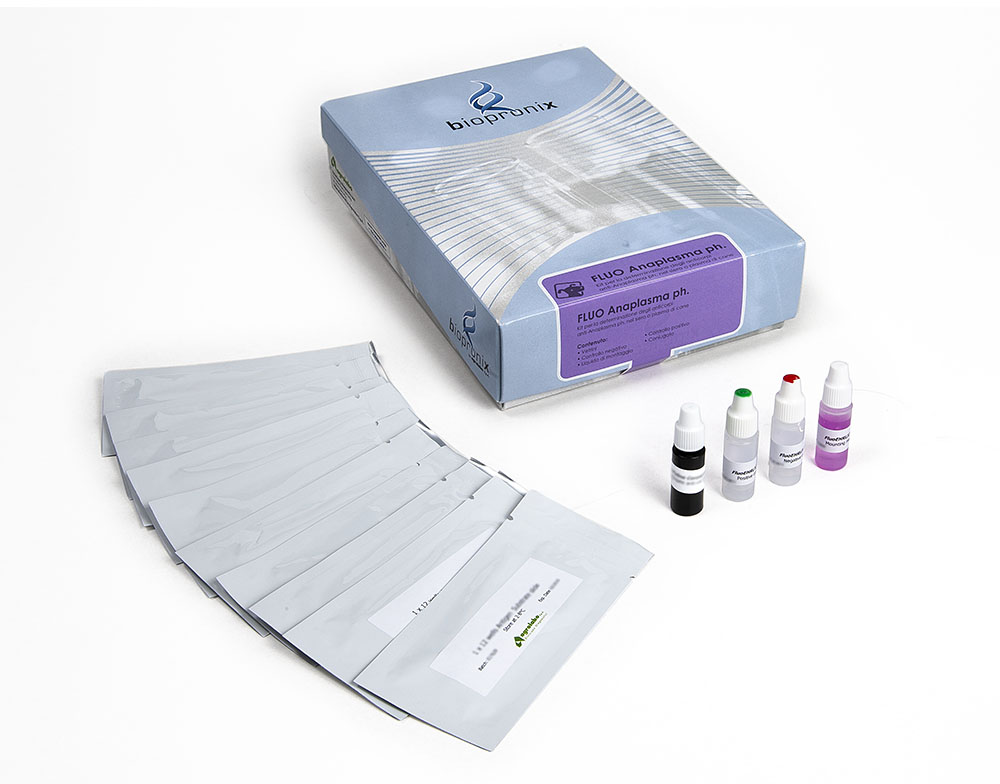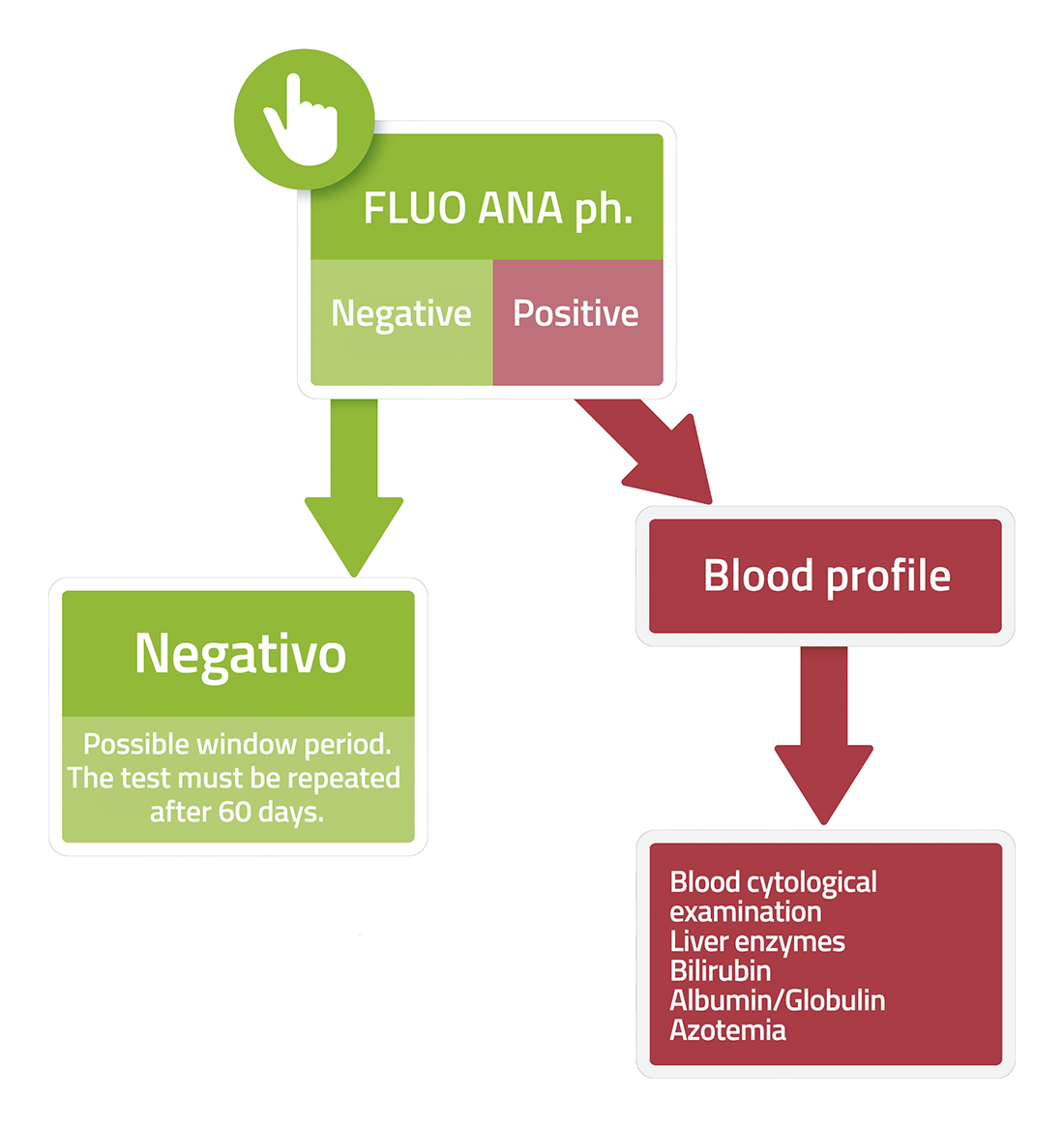FLUO ANAPLASMA ph. DOG
IFA kit for the detection of anti-Anaplasma phagocitophylum IgG antibodies
Fluo FLUO ANAPLASMA ph. DOG is a test based on the immunofluorescence technique for the detection of anti-Anaplasma phagocitophylum IgG antibodies in dog serum or plasma samples.
Anaplasmosis is an infectious disease caused by a bacterium of the genus Anaplasma, and transmitted by the so-called “wood ticks” (Ixodes ricinus). These ticks are the carriers of bacterial infection and transmit it to the dog when they attach themselves to its skin and bite it to make their blood meal. The geographic distribution of the disease follows that of its vector. The incubation of the disease after a tick bite is 1-2 weeks.
Once the dog is infected, the bacterium settles inside the white blood cells, causing progressive damage in the animal such as chronic pain in the limbs and, in rare cases, neurological disorders. Some people also develop irreparable damage to the kidneys and intestines.
The biggest problem of anaplasmosis and other tick-borne diseases is the possible co-infection, or the combination of multiple diseases in the same debilitated animal because it is more easily attacked and carried by the same tick, such as Borrelliosis or Lyme disease.
Symptoms may not be clear and appear suddenly, so the disease is difficult to treat; an early diagnosis, on the other hand, allows a complete recovery.
Most infections have nonspecific symptoms, such as:
- High fever
- Lethargy
- Loss of appetite
- Musculoskeletal pain or discomfort, characterized by reluctance to move, stiffness, weakness and lameness
- Rarely vomiting and diarrhea
If the disease is not treated, platelets and white blood cells deficiency, chronic joint pain and neurological symptoms (rare) occurs.

